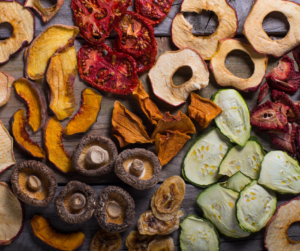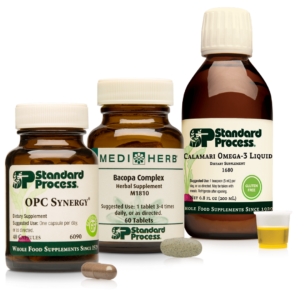By Claire Bacon, ACN, CNC
It’s normal for children not to listen sometimes, act without thinking, or be fidgety when you want them to be still. But when excessive, a poor attention span can be a sign of ADD and hyperactive disorders. These kids may also struggle with low self-esteem, poor performance in school, and troubled family relationships.
And statistics are increasing. More and more young children are being diagnosed with ADD and hyperactive disorders, usually before the age of seven. Although millions of children worldwide struggle with attention and focus, the issue is quite prevalent right here at home. In the U.S., approximately 15% of boys and 8% of girls have ADHD, according to 2024 data.
Sadly, recent studies indicate a 330% increase in psychotropic drug use in people under twenty over the past 10 years. Meanwhile, holistic strategies often get skipped over in favor of the meds. Holistic care can be very effective for hyperactive children, in most cases. It is vital to try the more conservative measures before medicating a young child in their developmental years. This prevents interrupting the subtle mental, emotional, and social evolution happening during this time.

Symptoms Of Inattention:
It’s not always that a child with a hyperactive disorder doesn’t want to pay attention. Children will tune out or skip steps when they are not thrilled about a topic or task. Usually, children diagnosed with hyperactive disorders show six or more of the below signs for six months or longer.
The symptoms of inattention include:
- Issues with close attention to detail
- Difficulty in sustaining attention to tasks or play
- Trouble with organizing tasks and activities
- Not listening when spoken to
- Not following through on instructions and failure to finish tasks
- Losing things necessary for a task
- Avoiding or reluctant to engage in tasks requiring sustained mental effort
- Easily distracted
- Forgetful in everyday activities

Signs Of Hyperactivity And Impulsivity:
While it’s normal for children to be extremely active, children with hyperactive symptoms are literally always moving. They may try to do several things at once and bounce from one activity to the next. On the other hand, impulsivity can cause problems with self-control. Signs of hyperactivity and impulsivity include:
- Constant fidgeting or squirming
- Difficulty standing still, playing quietly, or relaxing
- Moving constantly
- Talking excessively
- Having a quick temper
- Acting without thinking
- Interrupting others
- Intruding in other people’s conversations or tasks

Good Nutrition to Improve Attention Span
Good nutrition works! Nutrition can improve brain function and perhaps can make drug intervention unnecessary. Eating a healthy, balanced diet is important for children, especially those with ADD or hyperactive disorders.
Years of research show a connection between a high glycemic diet and ADD and hyperactive disorders. The Standard American (SAD) processed foods diet mainly includes sugary foods and drinks, white bread, potatoes, and white rice. You can make a few simple diet modifications to limit these problematic foods. It may make a huge difference for cognition and attention span in your child.
Primarily, you want to make sure your child gets lots of protein and healthy fats:
- Hard boiled eggs
- Raw or sprouted nuts and seeds
- Organic cheese (if dairy is tolerated)
- High quality deli meat
- Homemade chicken nuggets
- Chicken-apple sausage
- Homemade oat bran & yogurt pancakes
- Oatmeal doctored up with butter, coconut oil, nuts and seeds
- Dehydrated fruits and vegetables

Food Sensitivities
Food sensitivities can also be a culprit, as they rob the body of vitality and over-stimulate the adrenals. This creates a cascade of behavioral disturbances. If food allergies are unknown, keeping a food diary is helpful. Then be sure to document what behavior occurs a few hours later – whether good or bad.
The top potential sensitivities to avoid are:
- Wheat and other gluten grains, like Barley, Spelt, Triticale, Kamut, and Rye
- Dairy, especially cow’s milk more than goat or sheep, Cheese
- Nuts and Peanuts
- Corn, Popcorn, Corn meal, Corn oil
- Soy, Soybean oil, and Soy protein isolate
- Artificial Colors
- Artificial and Natural Flavors
- Sugar and High Fructose Corn Syrup

How to Improve Attention Span:
Three supplements we recommend most often to help with attention span are: Calamari Oil, Bacopa Complex, and OPC Synergy. This combination provides anti-inflammatory Omega 3 fats for brain health, with calming herbs and revitalizing antioxidants for brain integration.

- Calamari Oil helps to bridge the gap in dietary omega-3 intake. These healthy fats promote cognition and emotional balance.
- Bacopa Complex supports healthy cognitive function and mental clarity by easing the stress response.
- OPC Synergy provides antioxidants to maintain normal cognitive function, extend brain stamina, and reduce inflammation in the brain and cardiovascular system.
Immune Health
Is your child not paying attention because he’s always coming down with something? Always on the edge of fighting a cold? Then you might like to try the new Children’s Immune chewable wafers as a daily treat. They’re made with Vitamin C, Vitamin D, Zinc, prebiotics, and Elderberry.
Lots of great things in an all-in-one to stay well! And best of all, they taste like cotton candy!


